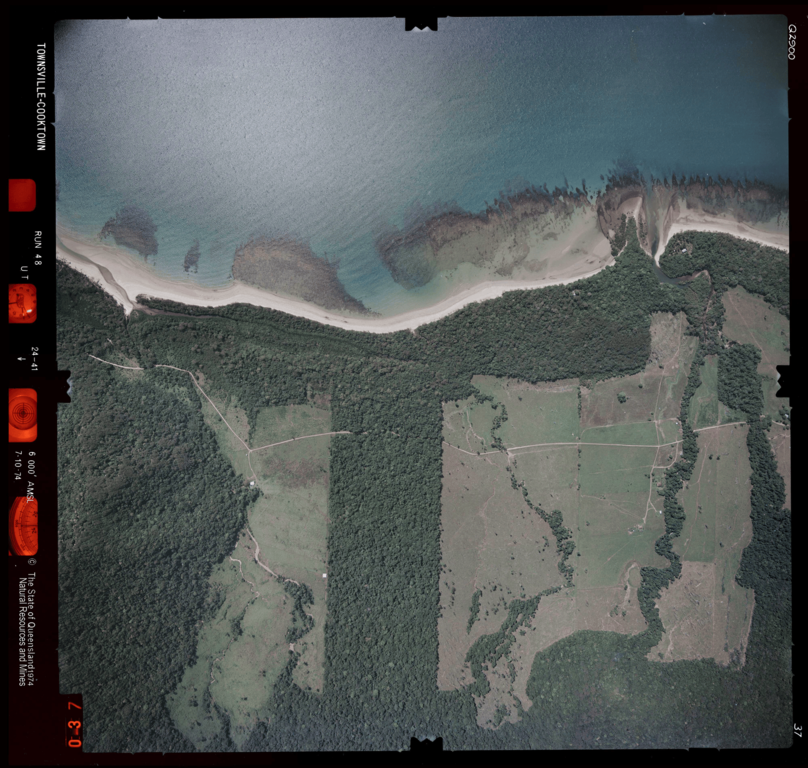
JUNGLE DRUM: Advice for the cane farmers
LAWRENCE MASON COLUMN

I never thought I would be giving advice to a cane farmer. After all, what I know about growing cane can be written in large letters on the back of a postage stamp. I grow a bit of Badilla, but I don't think that qualifies me at all.
But I do know a bit of an industry gone bad. My parents, not long after their meeting and marrying overseas, came back to Cape Tribulation to be cattle farmers.
Not in a big way, but they had 300 head on the place, and by all accounts that was enough to live comfortably in the late 60s and early 70s. Beef in real terms peaked at 726c/kg.
Unfortunately by 1975 it was as low as 267c/kg, according to Meat and Livestock Australia. This was not enough and I can remember shooting a couple of hundred head.
The waste sickened my parents and I recall my father was physically ill over it. People would not even remove the stock for free.
So I guess in some small way I get what the Douglas cane industry is facing. And I do hope that an investor can be found, and the industry survives. But if it does not, here is my advice.
One
Don't let your fallow land go back to trees. If you do this, at some point a bureaucrat will map your land as remnant, or find a frog, or something, and you will lose the right to farm it, clear it, or use it in any useful way.
Keep your best tractor, and a Howard EHD series, and keep the trees back. We didn't do this and lost a heap of land that I could now be fruit farming on. No compensation either. It is little more than State sponsored theft.
Two
Get a 'Lock it in PMAV'. Property Maps of Assessable Vegetation are the standard used to judge much of what you can and cannot do with land. And if the regrowth forms a canopy, you can bet you will struggle to clear it in the future.
John Deere and Howard products will help, but locking in your cleared land will ensure that if you fall on hard times, the trees can later be cleared simply by self assessment.
Three
Watch out for tourism bearing false gifts. Once you establish that tourism venture, and start making bucks, you will be assessed as 'commercial' and a nice bureaucrat will tell you about land tax. Your rates will also skyrocket.
This is how we lost our family's lifetime of savings, and the reason why I farm now and shut most of the tours down. Make sure your primary use is rural; it is the only way to avoid the assumption that everyone in tourism (or indeed everyone that is not farming) is rich and thus a cash cow. (pun intended)
Some of you may wish to revegetate and bring back nature. But due to the lack of holistic planning in this state, be very careful that you are not being asked to pay for the privilege of owning land you cannot use. Once nature comes back, it won't ever be able to be rural again. Look at an old image of Cape Trib and you will see just how quick the trees grow back.
I watched the end of cattle here, and saw my parents genuinely adopt the new way of looking at things; we had a huge nursery and were revegetating and putting in plantation timber well before it became populist and a way to remove money from guilty city folk.
Given our experience I cannot recommend it. If you want to pass your property on to your family, you will need it capable of generating income without being taxed to death. Think about it.
*Lawrence Mason has lived at Cape Tribulation all his life, and has been involved in farming, timber and tourism. He is a former board member of Tourism Port Douglas Daintree, founding Chair of Daintree Marketing Co-operative, and has been a member of both Alexandra Bay and Mossman State High School P&C. He is also a member of the Douglas Chamber of Commerce and has a keen interest in local issues.
- The opinions and views in this column are those of the author and author only and do not reflect the Newsport editor or staff.